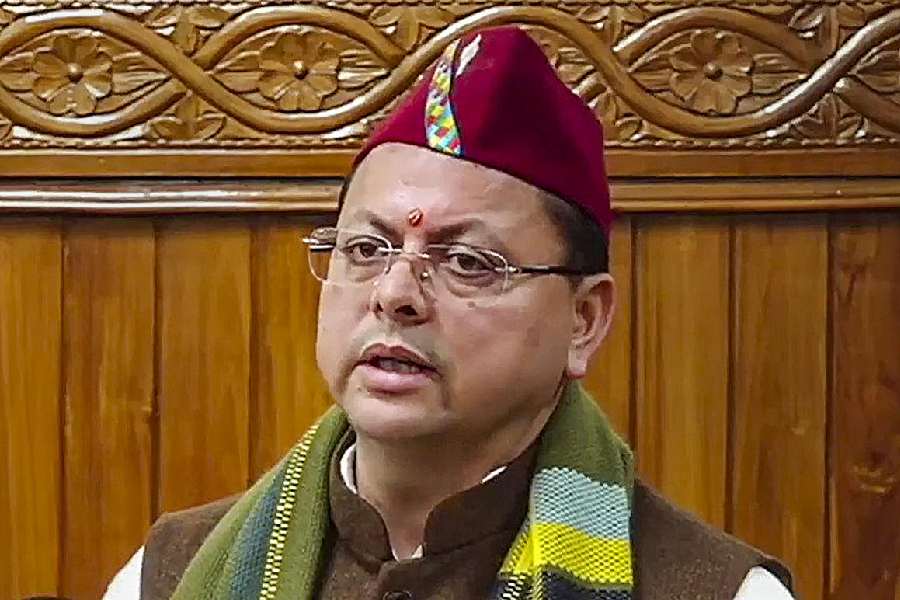The Uttarakhand Assembly on Wednesday passed the Uniform Civil Code (UCC) ordinance by voice vote.
Once the bill gets the governor’s consent, Uttarakhand will become the first state after Independence to have a common law on marriage, divorce, land, property and inheritance for all citizens, irrespective of their religion.
The UCC provides for the registration of all marriages, divorce, live-in relationships and successions. It bans polygamy and the practices of Halala and Iddat. A child born of a live-in relationship shall be considered legitimate, according to the UCC.
While all 47 MLAs of the BJP were present in the Assembly, many legislators of the Congress and other Opposition parties skipped the session, apparently because they were not in a position to halt the passage of the ordinance in the 70-member House.
The Congress didn’t oppose the UCC directly but had demanded that it be referred to a select committee of the House, which was turned down by Speaker Ritu Khaduri.
Chief minister Pushkar Singh Dhami announced that it was time to celebrate because Uttarakhand had become “the first state to implement the UCC”. “It is an ordinance that will soon become an act as we are sending it to the President and the governor,” Dhami told a news conference.
There is a provision of imprisonment from three months to three years and a fine for violating the UCC. Dhami said: “We organised 43 public communications and received 2,72,000 suggestions before finally preparing the draft of the act.”











